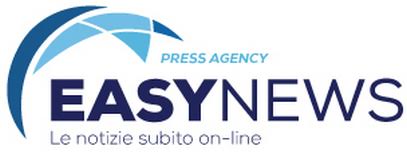
Creating a healthy online environment for children becomes one of WHO/Europe's official aims
There is enough scientific evidence demonstrating that exposure of children and adolescents to marketing for foods high in fats, sugars and/or salt increases the likelihood that they will agitate for, buy and consume these health-harming products. With the ambition of making the European Region the healthiest online environment for children, WHO/Europe launches its first ever official position paper on this matter.
LINK TO THE FULL VERSION OF THE POSITION PAPER BELOW
Digital advertisement can be harmful for children’s health
Digital marketing influences food preferences and can encourage establishment of unhealthy dietary patterns, leading to development of overweight, obesity and diet-related noncommunicable diseases such as cardiovascular diseases, cancer and diabetes.
WHO Regional Office for Europe will be launching its position paper “Making the European Region the healthiest online environment for children” on 11 March in Copenhagen during a conference titled “Building a Public Health Innovation Ecosystem in the WHO European Region”. This will be the first official document stating the need to protect health on the internet.
“We have been discussing online safety for many years now, at the highest political levels possible. It seems obvious to everyone that children and adolescents have the right to be protected on every digital platform. But it is discouraging to learn that children’s health has remained at the periphery of those discussions for years. It is time for us to see the great potential of the internet as a critical tool that can shape a healthier future for us all”, said Dr Hans Henri P. Kluge, WHO Regional Director for Europe.
“In the digital era, it is our responsibility as policy makers to protect children’s health and wellbeing. This WHO position statement will strengthen the health sector’s voice advocating for this and can foster dialogues among all stakeholders engaged in the important discussion on online safety”, said Jakob Forssmed, Minister for Health and Social Affairs of Sweden.
Online algorithms increase health harms
Children’s risk of exposure to online harms is increased both by access to age-inappropriate services and by algorithms and other approaches that are used to specifically target children.
“The rapid evolution of numerous online platforms and increase in the number of new mobile apps competing to attract and retain children’s attention poses significant health risks. These risks include increasing promotion of alcohol, tobacco and unhealthy foods, as well as addiction to online games and increased screen time which can impact on mental health and result in a lack of physical activity”, said Dr Gauden Galea, Strategic Adviser to Regional Director, Special Initiative on Non communicable Diseases (NCDs) and Innovation, WHO /Europe.
WHO/Europe position paper: what’s inside?
Across the WHO European Region, health experts are not regularly involved in government policy discussions and decisions on improving online safety for children. The WHO/Europe position paper aims to support governments in formulating consistent requests to online and technology companies.
In line with existing UN chargers, this WHO document calls for any person under the age of 18 must be recognized as a child. It covers the topics such as data collection from children should be reduced to a minimum and not used for commercial purposes such as digital marketing to children.
All the requests are based on the United Nations Convention on the Rights of the Child (UNCRC).
ACCESS THE FULL POSITION PAPER AT THIS LINK ON MARCH 11th 2024, 10:00 CET
To get a copy of the position paper beforehand, arrange an interview with WHO/Europe experts and for further enquiries, please contact:
Igor Kryuchkov
WhatsApp +7 916 104 8063
Tel. +995 598 21 79 11
This information was brought to you by Cision http://news.cision.com
If you would rather not receive future communications from WHO Regional Office for Europe, please go to https://optout.ne.cision.com/en/2PzhDUMDpKecrHQ4aKdKPzF8gvuj4RX93Mp4tMEPUTMo1HvvPWEztXQhuJEoUihv23iGS3bTSWZvFSr3ZCqhfVCzDQ9ZdnVEjD8Diihs1eCj4Yy5mphrggVcXxZjYihX7Di5.
WHO Regional Office for Europe, Marmorvej 51, Copenhagen, 2100 Denmark

